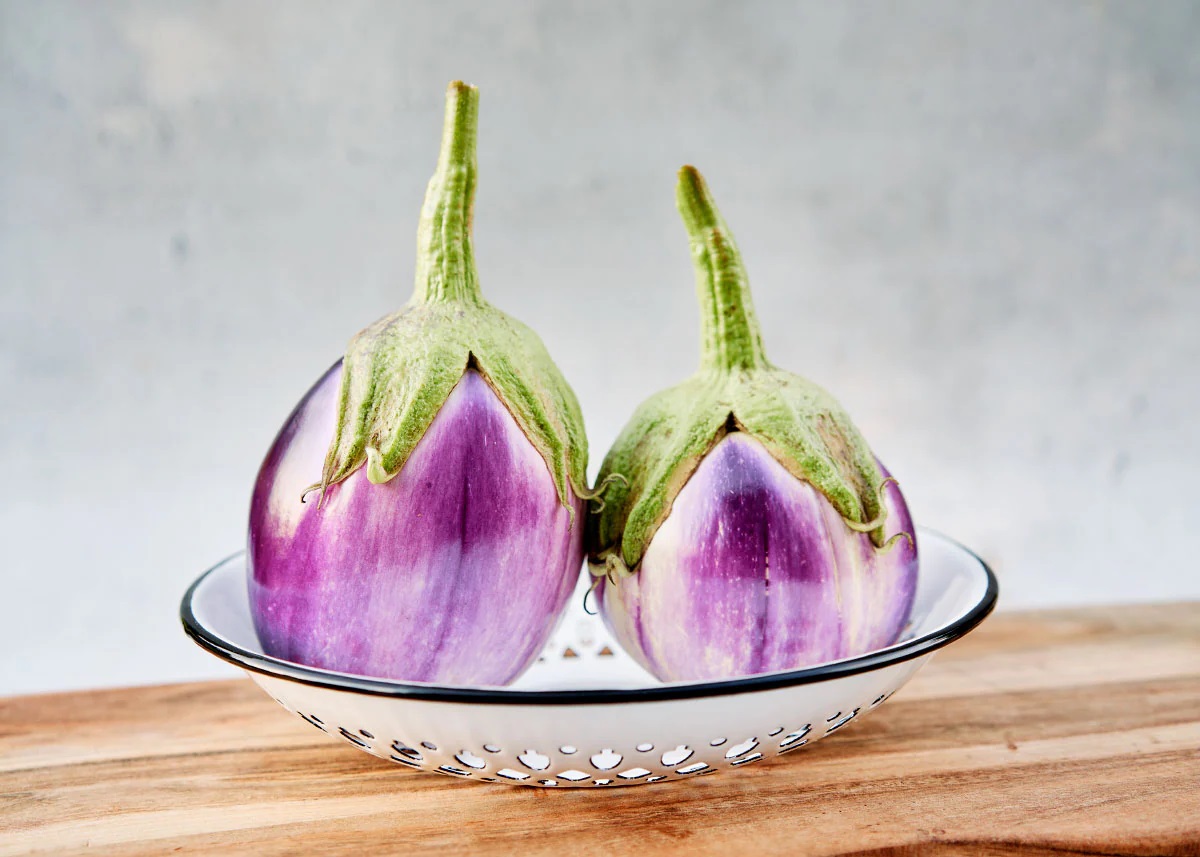
What makes the Rosa Bianca eggplant special? This heirloom variety stands out with its stunning lavender and white skin, making it a visual delight in any garden or kitchen. But beauty isn't its only charm. The Rosa Bianca boasts a creamy, mild flavor that lacks the bitterness often found in other eggplants. Perfect for grilling, roasting, or frying, this versatile veggie adapts to many recipes. Gardeners love it too! Its robust growth and resistance to common pests make it a favorite among green thumbs. Want to know more? Here are 20 fascinating facts about the Rosa Bianca eggplant that will make you appreciate this unique vegetable even more.
Key Takeaways:
- Rosa Bianca Eggplant is a visually stunning and mild-tasting variety that thrives in warm climates. It's low in calories, high in fiber, and packed with antioxidants, making it a healthy addition to any diet.
- Whether grilled, baked, fried, or roasted, Rosa Bianca Eggplant is a versatile ingredient that adds a creamy texture and rich flavor to a variety of dishes. It's a self-pollinating plant with cultural significance in Italy.
What is Rosa Bianca Eggplant?
Rosa Bianca eggplant is a unique and beautiful variety of eggplant known for its round shape and stunning purple and white streaks. This Italian heirloom is not only visually appealing but also offers a rich, creamy flavor that makes it a favorite among chefs and home gardeners alike.
-
Origin: Rosa Bianca eggplant hails from Italy, where it has been cultivated for centuries.
-
Appearance: It features a distinctive round shape with a mix of purple and white streaks, making it easily recognizable.
-
Size: Typically, these eggplants grow to about 4-6 inches in diameter.
-
Flavor: Known for its mild, creamy taste, it lacks the bitterness found in some other eggplant varieties.
Growing Rosa Bianca Eggplant
Growing Rosa Bianca eggplant can be a rewarding experience for gardeners. Here are some interesting facts about cultivating this beautiful plant.
-
Climate: Prefers warm climates and thrives in temperatures between 70-85°F.
-
Soil: Requires well-drained, fertile soil with a pH between 6.0 and 7.0.
-
Sunlight: Needs full sun, at least 6-8 hours of direct sunlight daily.
-
Watering: Consistent watering is crucial, but avoid waterlogging the soil.
-
Spacing: Plant seeds or seedlings about 18-24 inches apart to allow for proper growth.
Nutritional Benefits of Rosa Bianca Eggplant
Rosa Bianca eggplant is not just a treat for the eyes and taste buds; it also offers several health benefits. Here are some nutritional facts.
-
Low in Calories: Contains only about 20 calories per cup, making it a great addition to a low-calorie diet.
-
Rich in Fiber: High fiber content aids in digestion and helps maintain a healthy gut.
-
Antioxidants: Packed with antioxidants like nasunin, which protect cells from damage.
-
Vitamins and Minerals: Provides essential vitamins such as vitamin C, vitamin K, and B vitamins, along with minerals like potassium and magnesium.
Culinary Uses of Rosa Bianca Eggplant
Rosa Bianca eggplant is versatile in the kitchen, lending itself to a variety of dishes. Here are some culinary facts.
-
Grilling: Its creamy texture makes it perfect for grilling, adding a smoky flavor to dishes.
-
Baking: Can be baked into casseroles or stuffed with various fillings for a hearty meal.
-
Frying: Often used in classic dishes like eggplant parmesan due to its ability to hold up well when fried.
-
Roasting: Roasting brings out its natural sweetness and enhances its creamy texture.
Interesting Tidbits About Rosa Bianca Eggplant
Here are some fun and lesser-known facts about this unique eggplant variety.
-
Pollination: Rosa Bianca eggplants are self-pollinating, meaning they don't require another plant to produce fruit.
-
Companion Plants: Grows well alongside beans, peppers, and spinach, which can help deter pests.
-
Cultural Significance: In Italy, it is often associated with traditional dishes and is a staple in many regional cuisines.
Final Thoughts on Rosa Bianca Eggplant
Rosa Bianca eggplant stands out for its unique flavor, creamy texture, and stunning appearance. This heirloom variety, with its purple and white skin, not only adds visual appeal to dishes but also offers a mild, sweet taste that complements various recipes. Growing Rosa Bianca in your garden can be rewarding, as it thrives in warm climates and requires minimal care. Its versatility in cooking makes it a favorite among chefs and home cooks alike. Whether roasted, grilled, or sautéed, this eggplant variety brings a delightful twist to meals. If you’re looking to diversify your vegetable garden or culinary repertoire, Rosa Bianca eggplant is a fantastic choice. Embrace this beautiful and tasty vegetable, and enjoy the rich flavors it brings to your table.
Frequently Asked Questions
Was this page helpful?
Our commitment to delivering trustworthy and engaging content is at the heart of what we do. Each fact on our site is contributed by real users like you, bringing a wealth of diverse insights and information. To ensure the highest standards of accuracy and reliability, our dedicated editors meticulously review each submission. This process guarantees that the facts we share are not only fascinating but also credible. Trust in our commitment to quality and authenticity as you explore and learn with us.


